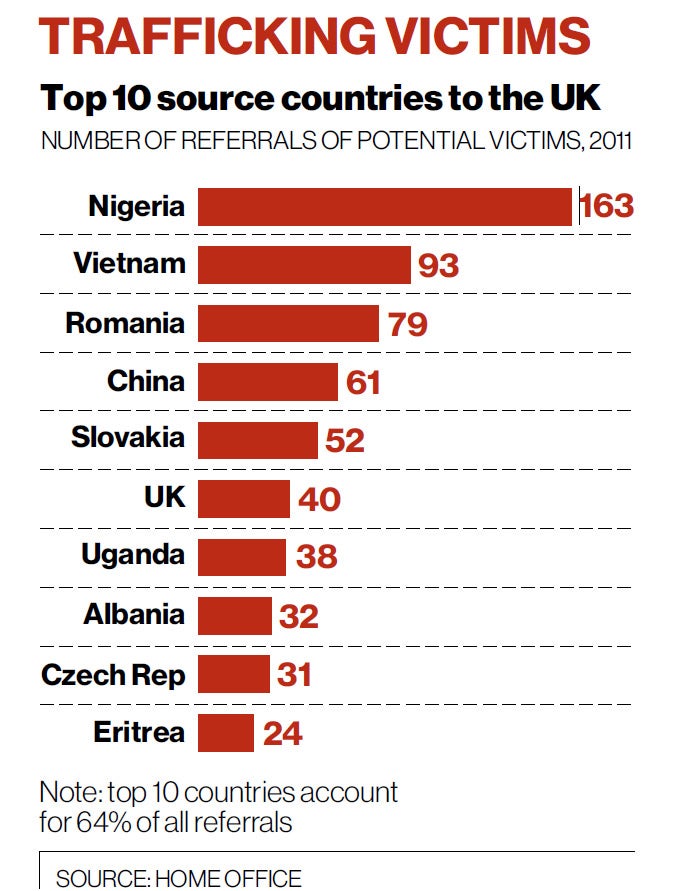Traffickers using 880,000 people as slave labour in EU
European Parliament report calls for tougher sanctions to crack down on €25bn-a-year industry

Your support helps us to tell the story
From reproductive rights to climate change to Big Tech, The Independent is on the ground when the story is developing. Whether it's investigating the financials of Elon Musk's pro-Trump PAC or producing our latest documentary, 'The A Word', which shines a light on the American women fighting for reproductive rights, we know how important it is to parse out the facts from the messaging.
At such a critical moment in US history, we need reporters on the ground. Your donation allows us to keep sending journalists to speak to both sides of the story.
The Independent is trusted by Americans across the entire political spectrum. And unlike many other quality news outlets, we choose not to lock Americans out of our reporting and analysis with paywalls. We believe quality journalism should be available to everyone, paid for by those who can afford it.
Your support makes all the difference.At least 880,000 people are forced to work in slave labour conditions across the European Union, part of an illicit trafficking industry worth billions of pounds to criminal gangs each year, a European Parliament committee has estimated.
Cases of slave labour have been reported across all 28 members of the bloc, with women and children particularly vulnerable to exploitation, according to the report on all aspects of organised crime, corruption and money laundering, which is due to be presented to MEPs next week.
Of the nearly one million slave labourers in the EU, 270,000 of them are trapped in a life of sexual exploitation. Trafficking and enslavement “are very lucrative forms of crime”, the report notes, with the trafficking in human beings estimated to earn criminal gangs €25bn (£21bn) a year.
High unemployment and prolonged recessions, as nations grapple with the economic crisis, have increased the dangers of exploitation, the report said, as people moving around the bloc looking for work “can sometimes provide [organised crime] with new victims”. “The economic crisis of recent years has resulted in significant changes in the areas of interest of organised crime, which has been able quickly to identify the new opportunities being offered,” it said.
It is not just the human toll worrying EU officials. Corruption and organised crime are estimated to be costing Europe’s struggling economies €670bn a year. Goods being trafficked into the EU and between member states include human organs, weapons, drugs and even nuclear substances, according to the report, which pulled together data from Interpol, Europol and the United Nations.
The action plan calls on the European Commission and member states to impose tougher sanctions on traffickers, strengthen labour inspections, and assist labour protection organisations such as unions. The report will be presented to the European Parliament next Wednesday, with the recommendations expected to go to member states for consideration next year.
“We need to stand united in the fight against mafias,” Salvatore Iacolino, an Italian MEP who drafted the proposals, said last month when the report was completed. “Now it is up to member states to follow up and bring forward the measures we are proposing here.”

Join our commenting forum
Join thought-provoking conversations, follow other Independent readers and see their replies
Comments